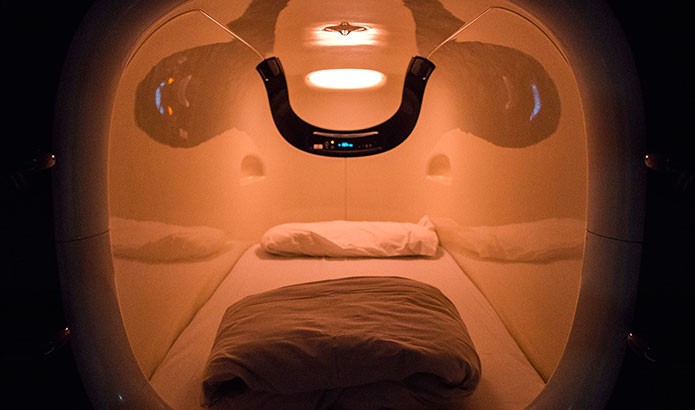
In June, an Osaka-based company employee, whose name was not given, was making appointments for an upcoming business trip to Tokyo. Everything was falling into place until a search for overnight accommodation resulted in problems, reports Nikkei Business (24 August). While the firm’s travel allowance provides for a maximum of ¥8,000 per night for hotel outlays, there wasn’t a room to be found for under ¥20,000.
In desperation, he found lodgings for ¥8,700 in an unfamiliar suburb called Akishima, but confused the name with Showajima (since two of the three characters in the names are the same). The latter is near Haneda Airport and just 20 minutes from the city centre; Akishima, meanwhile, is close to the Yokota Air Base in western Tokyo and a 90-minute train ride from the city centre. By the time things had been straightened out, he was a nervous wreck.
The supply–demand situation for hotel accommodation has been skewed by the high demand for hotel rooms, resulting from the number of foreign visitors soaring on the back of the favourable yen exchange rate and the loosening of short-term visa restrictions. Business hotel occupancy rates in Osaka, for instance, soared from 78.6% in 2013 to 85.4% in May 2015. It has also made finding rooms at short notice or the same day much more difficult, and it has had a pronounced effect on room rates.
According to research by British benchmarking firm STR Global, average room rates for Tokyo in the first six months of this year were around ¥17,500—an increase of 32% over 2011 rates. For Osaka, the figures were ¥14,700 and 42% respectively. Travellers to Fukuoka and Sapporo are also feeling the pinch.
Nikkei Business offers out-of-town employees nine possible solutions should the situation become desperate. They include reconfirming room availability on hotel websites after 3pm; searching for hotels in city suburbs; staying in a room-less capsule hotel; travelling to and from one’s destination using one of Japan’s surprisingly comfortable overnight bus services; scheduling one’s appointments to avoid the need to spend a night away from home; renting a flat; or staying in “love hotels”, which accept single customers.
One such love hotel, in Fukuoka City, has been offering a business plan since the beginning of 2015, and even accepts reservations, although only on weekdays. The hotel will issue a receipt, but to avoid possible suspicion by one’s spouse, or controversy, it will simply bear the respectable-sounding name of the firm that operates it, rather than the hotel’s name.